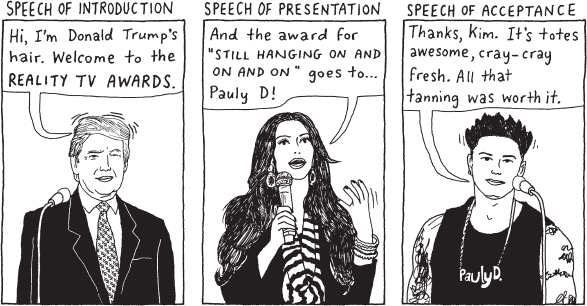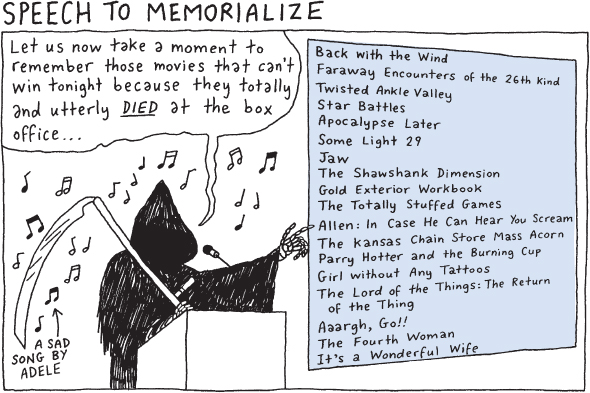TYPES OF SPECIAL-OCCASION SPEECHES
Printed Page 589
Although there are various types of special-occasion speeches, the six most common are as follows:
- Speech of introduction. Sometimes referred to as “the speech before the speech,” this is a brief presentation designed to prepare an audience for the “main event”—a speaker, a performance, or an activity that will follow. A speech of introduction provides context and gives credentials for the main speaker or performer.
- Speech of presentation. Awards, honors, and special designations often require speeches before they are conferred. A presentation speech explains the background and significance of the award and the reasons why the recipient is deserving of it.
- Speech of acceptance. Recipients of honors, awards, or designations are often expected to give a short presentation of their own—something beyond a simple thank-you. Recipients typically express gratitude for the award, extol the award’s significance to them and others, and acknowledge others’ support and contributions.
- Speech to memorialize or eulogize. A eulogy comments on the passing of an individual, celebrates his or her life, and often shares personal reflections and stories about the deceased. It offers an appropriate method for recovering from grief, and helps people feel consolation while also paying tribute to their sense of loss.3 A speech to memorialize uses the same approach but is expanded to honor the sacrifice and heroism of a group of individuals—often on a significant anniversary, such as Veterans Day or September 11.
- Speech to celebrate. Events that represent rites of passage—such as christenings, graduations, weddings, reunions, and retirements—often demand celebration speeches. These may take the form of a toast or special observance that focuses the audience’s attention on the milestone achieved, and recognizes the joy and pride the participants feel.
- After-dinner speech. At times, a speaker needs to use humor and good storytelling to lighten the mood of an occasion or soften up an audience. Though these presentations are called “after-dinner speeches” (in the tradition of Mark Twain), they can follow or precede a meal. Light in tone, they can help a speaker entertain his or her listeners or set the stage for an event that follows the meal, such as a fund-raising effort for a charitable cause.



At some events, you’ll hear more than one type of special-occasion speech being delivered. Consider the Academy Awards—what most of us call the Oscars. This star-studded annual event begins with a speech of introduction. A master of ceremonies—perhaps Ellen DeGeneres, Jon Stewart, or Seth MacFarlane—prepares the audience for the main event, often acknowledging the honored tradition of the Oscars while also telling jokes to loosen up the crowd. At some point during the evening, a well-known actor gives a presentation speech before announcing a lifetime achievement award for a long-famous director or producer. Recipients of Oscars and lifetime achievement awards deliver acceptance speeches thanking the academy, exclaiming how much the award means to them, and acknowledging (sometimes seemingly endlessly) the support they’ve received from their families and colleagues. Later in the evening, a presenter might eulogize a recently departed luminary from the motion-picture industry.
Each of the six types of special-occasion speeches serves a unique purpose and evokes a different mood, but they all have something in common: to deliver any of them effectively, you must apply certain common skills (such as evoking your listeners’ emotions and being mindful of their expectations). We present the following guidelines to give you a basic foundation of knowledge before exploring strategies tailored to each of the six types of speeches.